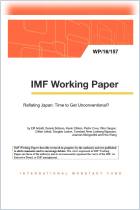Зарегистрируйтесь на getAbstract, чтобы получить доступ к этому краткому изложению.

Зарегистрируйтесь на getAbstract, чтобы получить доступ к этому краткому изложению.
Dennis Botman, Stephan Danninger and Jerald Schiff
Can Abenomics Succeed?
Overcoming the Legacy of Japan’s Lost Decades
IMF, 2015
Что внутри?
Japan’s ambitious Abenomics project is a radical but rational economic recovery plan.
Recommendation
Japan’s economic journey since the 1980s has been intriguing. In some ways, the country’s problems are unique, but it has also had to tackle issues similar to those of other Western nations, only more so – and first. To some, Prime Minister Shinzō Abe’s raft of reforms, called Abenomics, is a disconcerting mix of right-wing structural adjustments and left-leaning quantitative easing and massive deficit spending. While many of Abe’s proposed reforms seem uncontroversial and sensible, they also entail attempts to make corporations less prudent and more profit-hungry – an aspiration that may startle Western observers. Japan’s strengths – including the size of its economy, its robust currency and its global trading position – contribute to an economic picture that feels simultaneously extreme and logical. This compendium of essays by economists Dennis Botman and Stephan Danninger, professor Jerald Schiff and a team of area experts and International Monetary Fund contributors is quite dry in places, as you might expect, and the different contributors often go over the same ground – sometimes with slightly different conclusions. But their explanations are fascinating, and their top-notch factual content is comprehensive. getAbstract recommends this text to economists, executives and investors with the note that Japan’s economic progress may offer some important lessons for other countries.
Summary
About the Authors
Dennis Botman and Stephan Danninger are economists with the International Monetary Fund. Jerald Schiff is an adjunct professor at American University in Washington, DC.






















Comment on this summary